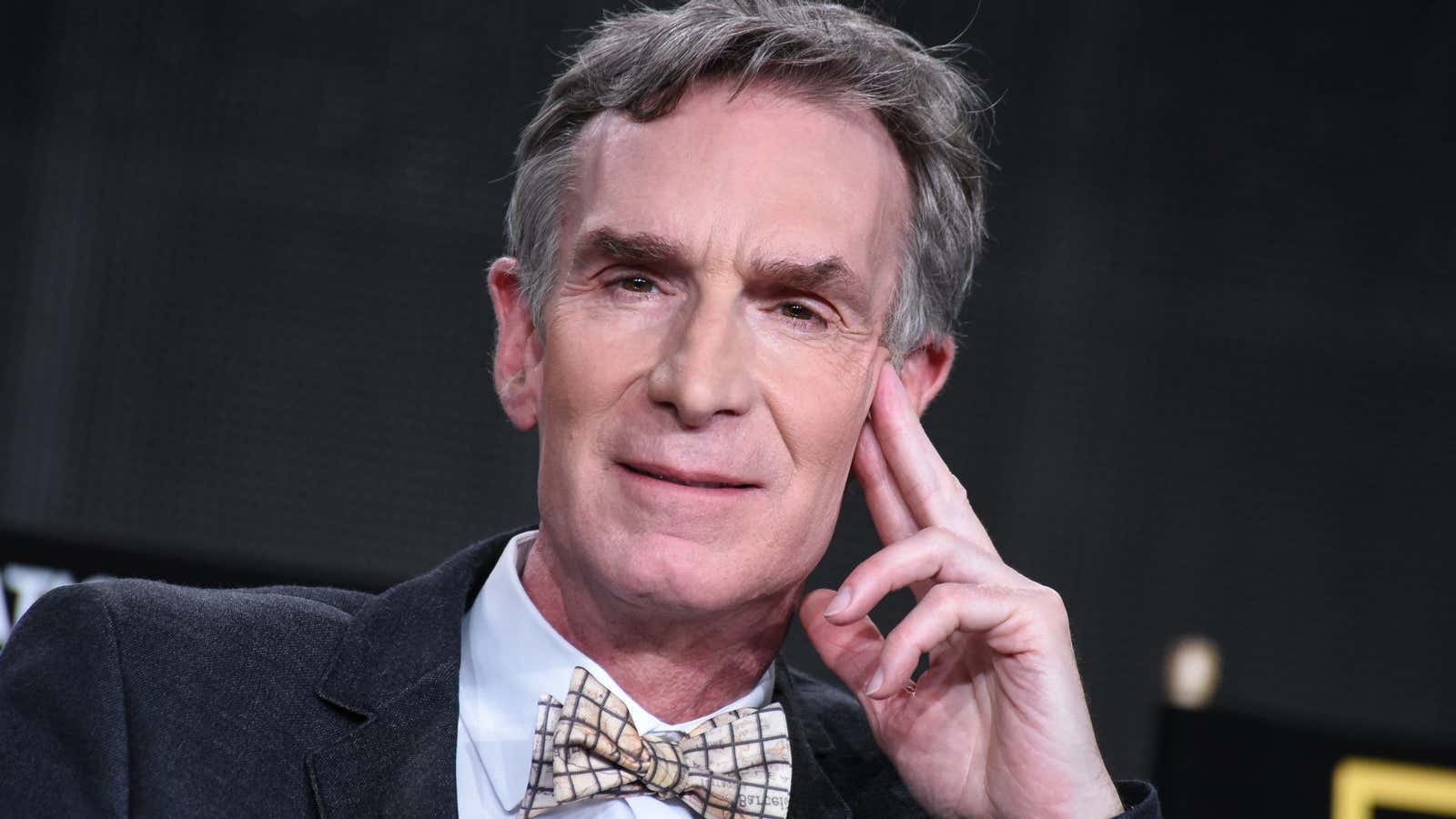Bill Nye, the science guy, is now a budding philosopher.
It’s a big turnaround for Nye, who last year dismissed philosophy as useless and misguided. That prompted a strong backlash, including a piece that I wrote: “Why are so many smart people such idiots about philosophy?“
“Thank you for writing that critical article,” Nye told me on the phone this week. “It really led to something.”
Nye said my article convinced him to reconsider the evidence and start reading philosophy. “I couldn’t sleep for months,” he said. Now he has incorporated philosophical ideas into his upcoming book and Netflix show.
Shortly after reading my article, Nye began discussing philosophy with his friend David Kyle Johnson, a professor of philosophy at King’s College in Pennsylvania. Nye listened to Johnson’s lectures on The Big Questions of Philosophy and read his works. “I read his book so many times, it fell apart,” Nye said. “I had to get another copy.”
The science guy said he learned the importance of major philosophical figures. “People allude to Socrates and Plato and Aristotle all the time, and I think many of us who make those references don’t have a solid grounding,” he said. “It’s good to know the history of philosophy.”
Nye was particularly taken by epistemology, an area of philosophy concerned with knowledge. He said he was struck by the argument that a “justified true belief“ constitutes factual knowledge. Indeed, philosophy has long been instrumental in determining what facts, including scientific facts, are truly valid. (This continues to be true as science advances to a realm were it no longer makes testable predictions.)
Nye is now convinced philosophy and science overlap, with both fields in pursuit of the justified true belief. “It’s an intimate connection,” he said. “What used to be called a ‘natural philosopher’ is now called a scientist.”
His upcoming book now credits English natural philosopher William Whewell with the first recorded use of the word “scientist” in 1833. “That’s the kind of thing that my new interest in philosophy has led me to pursue: a whole freaking chapter in my new book,” Nye said.
And while Nye still has some critiques of philosophy, he’s become philosophical in his assessment. He’s unconvinced by outlandish theories, such as the argument from Oxford philosopher Nick Bostrom, widely propagated by Elon Musk, that it’s likely we’re living in a video game.
“That, to me, is completely unreasonable,” Nye said. “David Kyle Johnson and I agreed that there are things you can be sure of. The shortcut of knowing that you’re sure of them is Occam’s razor.” (Occam’s razor is a philosophical principle from the 14th century, arguing that the simplest theory founded on the fewest assumptions is most likely the correct one.)
Ultimately, Nye is now convinced that philosophy is a pure form of critical thinking and would like “everybody in the world” to have a philosophical outlook. His Netflix show, Bill Nye Saves the World, will focus on issues such as climate change and alternative medicine. Nye believes a philosophical approach to studying the facts should convince everyone of the scientific validity of climate change and the falsity of alternative medicine.
That said, Nye recognizes that not everyone is suited to philosophical thought. The administration of US president Donald Trump, which has proposed cuts to the Environmental Protection Agency and called for an exit from the Paris climate change agreement, is a striking example.
“It’s not clear to me that president Trump thinks deeply about anything. The evidence for that are his continual changes of mind,” Nye said. Trump’s views, he said, “do not seem to be well-reasoned.”
But while it might take more than an article to convince Trump of the value of philosophy, the science guy plans to continue his philosophical thinking. “I’ve come late to this,” he said. “Now I’m all about the philosophy. Bring it on.”
